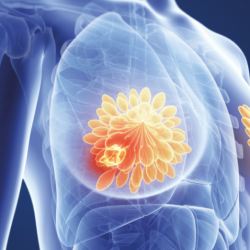
A new, comprehensive report on breast cancer avoidance reached two important conclusions regarding how women can manage their risk: one focused on ways to reduce it with exercise, and the other showed, conversely, how light – but steady – alcohol consumption increases this cancer risk.
The paper, incorporating data on 12 million individuals from nearly 120 studies, showed that engaging in vigorous exercise – such as running and briskly-paced bicycling – cut risk by as much as 17 percent in pre-menopausal women, and 10 percent in post-menopausal women. Those figures were as compared to those classified as "least active."
Meanwhile, the second main takeaway showed "strong evidence that drinking the equivalent of a small glass of wine or beer a day (about 10 grams alcohol content) increases pre-menopausal breast cancer risk by 5 percent and post-menopausal breast cancer risk by 9 percent," according to a news release issued today announcing the report's findings.
 The report was compiled by the American Institute for Cancer Research and the World Cancer Research Fund. The WCRF manages the Continuous Update Project, which describes itself as "the world’s largest source of scientific research on cancer prevention and survivorship through diet, weight and physical activity."
The report was compiled by the American Institute for Cancer Research and the World Cancer Research Fund. The WCRF manages the Continuous Update Project, which describes itself as "the world’s largest source of scientific research on cancer prevention and survivorship through diet, weight and physical activity."
"With this comprehensive and up-to-date report the evidence is clear," states lead author Dr. Anne McTiernan, that "[h]aving a physically active lifestyle, maintaining a healthy weight throughout life and limiting alcohol -- these are all steps women can take to lower their risk."
The updated information in the report also underscored these previous findings: (1) mothers who breastfeed lower their chances for breast cancer, and (2) the chances of post-menopausal breast cancer increase for female adults who are overweight or obese.
Regarding vigorous exercise, the report's conclusion supports findings in a 2012 study conducted by researchers at the University of North Carolina. As we wrote then, "Women who exercised either during their reproductive or postmenopausal years had a reduced risk of developing breast cancer. Women who exercised 10 to 19 hours per week experienced the greatest benefit with an approximate 30 percent reduced risk."
This report mainly addressed risks connected to lifestyle, but it should also be reiterated that there are established indicators for breast cancer, with family history being one of the most prominent. Others are having experienced an early menstrual period, and the lack of experiencing full-term pregnancies.
